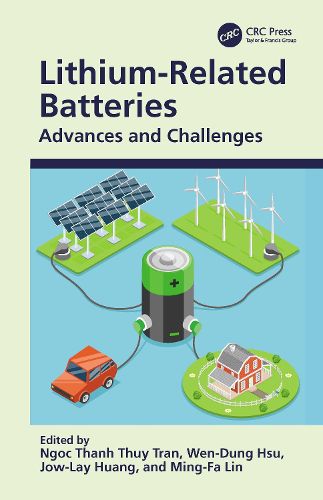Readings Newsletter
Become a Readings Member to make your shopping experience even easier.
Sign in or sign up for free!
You’re not far away from qualifying for FREE standard shipping within Australia
You’ve qualified for FREE standard shipping within Australia
The cart is loading…






This book serves as a comprehensive treatment of the advanced microscopic properties of lithium- and sodium-based batteries. It focuses on the development of the quasiparticle framework and the successful syntheses of cathode/electrolyte/anode materials in these batteries.
FEATURES
Highlights lithium-ion and sodium-ion batteries as well as lithium sulfur-, aluminum-, and iron-related batteries
Describes advanced battery materials and their fundamental properties
Addresses challenges to improving battery performance
Develops theoretical predictions and experimental observations under a unified quasiparticle framework
Targets core issues such as stability and efficiencies
Lithium-Related Batteries: Advances and Challenges will appeal to researchers and advanced students working in battery development, including those in the fields of materials, chemical, and energy engineering.
$9.00 standard shipping within Australia
FREE standard shipping within Australia for orders over $100.00
Express & International shipping calculated at checkout
This book serves as a comprehensive treatment of the advanced microscopic properties of lithium- and sodium-based batteries. It focuses on the development of the quasiparticle framework and the successful syntheses of cathode/electrolyte/anode materials in these batteries.
FEATURES
Highlights lithium-ion and sodium-ion batteries as well as lithium sulfur-, aluminum-, and iron-related batteries
Describes advanced battery materials and their fundamental properties
Addresses challenges to improving battery performance
Develops theoretical predictions and experimental observations under a unified quasiparticle framework
Targets core issues such as stability and efficiencies
Lithium-Related Batteries: Advances and Challenges will appeal to researchers and advanced students working in battery development, including those in the fields of materials, chemical, and energy engineering.